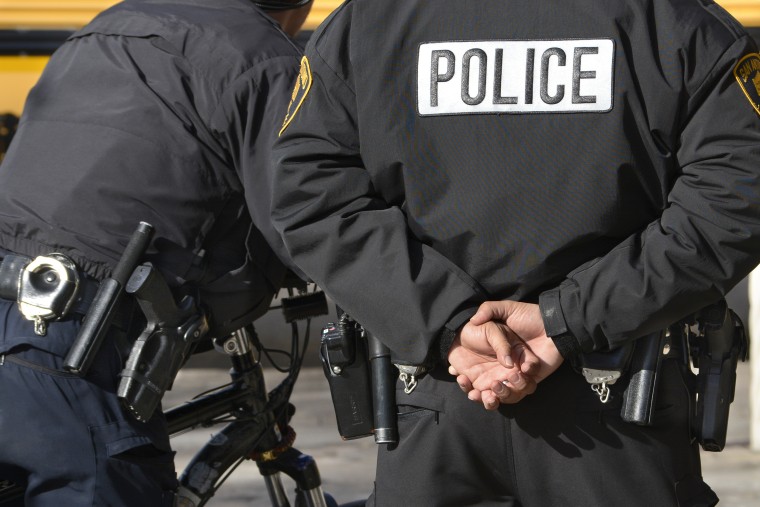Texas charted new legal territory by becoming the first state to make buying sex a felony, a move signaling a crucial change in how the justice system has long approached prostitution.
The state unanimously passed HB1540, which was signed into law by Gov. Greg Abbott in June, to crack down on so-called “johns” who pay for sex, in an attempt to shift punitive blame away from those who engage in prostitution, many of whom are often victims of trafficking. The law goes into effect Sept. 1.
“We know the demand is the driving force behind human trafficking,” said Texas state Rep. Senfronia Thompson who authored the bill. “If we can curb or stamp out the demand end of it, then we can save the lives of numerous persons.”
While some experts say the law reflects a new wave of systemic reform and could help trafficked sex workers by deterring demand, others say it misses the mark and instead will further tie the victims up in the legal system.
The new law came together after the Texas Human Trafficking Prevention Task Force, a group formed by the state Legislature in 2009, presented its recommendations, the Houston Chronicle reported.
On top of increasing the penalty on paying for prostitution, to a maximum of two years of jailtime for the first offense, the Texas law also expands felony charges against traffickers who recruit minors at treatment facilities and youth centers, the newspaper reported.
The new law also added a misdemeanor charge, punishable by up to a year in prison, for those who trespass on treatment center properties, and enhanced penalties for anyone caught selling drugs or committing other drug-related crimes within 1,000 feet of the centers, according to the newspaper.
“This law is a rethinking of the traditional supply side in prosecutions that tended to target the women who were involved in these activities and not the buyers,” said Sandra Guerra Thompson, director of the Criminal Justice Institute at the University of Houston Law School. “It’s also coming from a growing awareness that oftentimes, those involved are from a vulnerable class.”
She said the law also aligns with similar approaches around the country like offering sex workers pretrial diversions, which allows them to go through alternative sentencing options rather than spending time in jail or prison. The intent is to focus on rehabilitation rather than on the punishment, she said.
“It's really unfair to someone who is a victim to prosecute them rather than try to help them escape their situation and get their lives back on track,” she said, adding that the law could serve as a model to other states that may be considering similar measures.
Other local advocates also see the law deterring the buying of sex as a good move. “Back in the days, basically you would get a fine,” said Juan Cano, one of the chairs for the Rio Grande Valley Anti Human Trafficking Taskforce, according to NBC 23 in Rio Grande. “It gives law enforcement another way to charge those who are purchasing sex. What it does is basically enhances, and it goes to a state felony which is entitled to jail time.”
While accurate numbers on sex trafficking are hard to pin down, the Polaris Project, a nonprofit organization that operates the U.S. National Human Trafficking Hotline, reported over 22,000 victims of trafficking in 2019 nationally, and added that the number of online situations of sex trafficking reported to the hotline increased by more than 45 percent during the pandemic.
A 2016 study by the University of Texas at Austin's Steve Hicks School of Social Work, stated that there are approximately 79,000 minor and youth victims of sex trafficking at any given time, which has cost the state $6.6 billion.
But while some are hopeful, other experts say the law will have an opposite effect on sex trafficking.
Kathleen Kim, a professor at Loyola Marymount University Law School who focuses on human trafficking, said while the law may be well-intentioned, it will end up entangling victims in the legal system and take valuable funding away from the resources they actually need.
“Putting individual 'johns' in jail will do absolutely nothing for victims of trafficking,” she said. "In fact, it harms them because evidence demonstrates that the more resources that go into law enforcement approach, the more that victims lose because resources that ought to be going towards things like victim benefits, social services support, and legal advocacy, is still unavailable and maybe even diminished because more resources are going toward a dominant criminal enforcement approach.”
Kim said what often plays out in practice is that survivors are “rounded up” in the same operations as those buying sex, and either become criminalized themselves or enmeshed in investigations as witnesses, which often re-traumatizes and re-exploits them.
One way to improve the law could be to add a provision in the bill or additional law that promises blanket immunity for the providers of the sex services from any kind of arrest or legal charge and does not compel other participation unless they themselves want to, she said, adding that anti-trafficking efforts can only work if victims feel safe around law enforcement.
Kim did say that some of the other provisions of the Texas law that aim at traffickers who prey on women and minors may be more useful in helping victims.
“If felony convictions against 'johns' is the only thing lawmakers want to focus on, then the implementation of that law will sustain the exclusion and marginalization of trafficking victims," she said. "If they really want to help, then they have to address the root cause like inadequate housing, underemployment, and discrimination."
